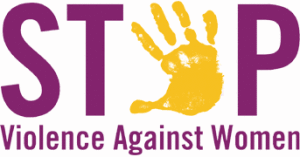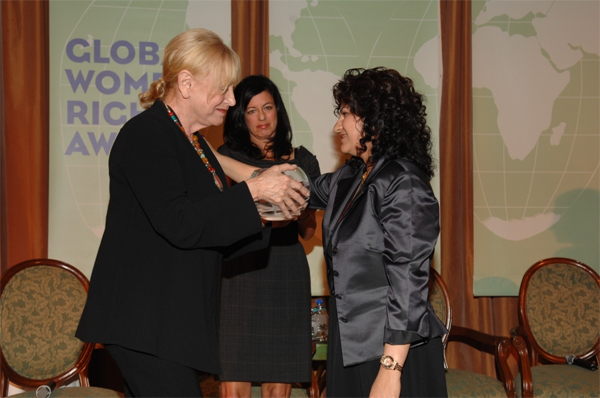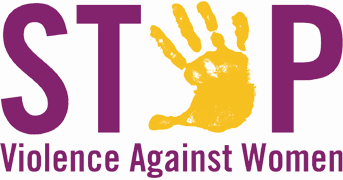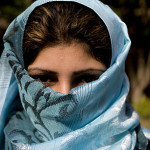 “Growing up in such high level of political violence, state oppression, and degradation had left its impact on me of course… from a very early age I became very rebellious against imposed norms and restrictions.”The Organisation of Women’s Freedom in Iraq.
“Growing up in such high level of political violence, state oppression, and degradation had left its impact on me of course… from a very early age I became very rebellious against imposed norms and restrictions.”The Organisation of Women’s Freedom in Iraq.
After the invasion in 2003, the situation of Iraqi women deteriorated and the rights and freedoms of women have been severely jeopardized.
Several organisations are now working hard to fight for Iraqi women. The Organisation of Women’s Freedom in Iraq (OWFI) works at all levels to defend women’s rights and strive for freedom and equality. The rise of Islamist extremism and conservatism in Iraqi society as a result of many years of wars, sanctions and dictatorship has meant that women are the main loser of these wars.
The situation in Iraq is so dire that OWFI has to take a stand against violations of women’s rights on a daily basis. The organisation struggles against gender-based violence, sexism, racism, tribalism, and traditions which contribute to subjugation of women. Lately they have stepped in to defend LGBT rights, as they have been targeted and massacred by Islamist militias.
Getting involved
Houzan Mahmoud, a prominent activist in OWFI, was born and grew up in Kurdistan. Like many Kurdish people from a very early age she is a witness to and survivor of many wars.
“My passion and determination to defend women’s rights, break taboos and expose violence against women goes back to what I have witnessed and experienced as a female in my society.”
Kurdish people were subjected to violence, genocide, chemical bombardment, and ethnic cleansing by the Ba’ath regime. They were treated as second class citizens, and were systematically targeted for imprisonment, torture, mass executions, mass killings and the destruction of their homes.
This was Houzan’s life for two decades, this is what she witnessed. Growing up in the midst of political violence, state oppression, and degradation had shaped her. Her family was highly involved in politics, and engaged in armed struggle against the regime. Her brothers were Marxists – this had a profound impact on her self- awareness as a woman in a traditional society.
Since she grew up in a society where normal life was something far from reality, women’s freedoms were looked at as a matter of luxury for a society in a state of war, widespread violence and militarisation. Houzan has had to fight back against this representation and evaluation of women’s essential rights.
Women in Iraq and Kurdistan region
Kurdistan has gone through many decades of political instability, violence and war and the Kurdish people still bear its scars. Women in such societies suffer from multiple layers of violence, sexism, discrimination and inequality.
Houzan points out that they suffer from honour killings, FGM, forced marriages, early marriages, stoning, rape, marital rape and many other forms of violence. In Iraq, wars, sanctions, and occupation have pushed women’s rights back to the dark ages and political Islam and many other conservative norms and values have gained resonance in society.
According to Houzan, the veil and burqa, sexual violence, trafficking, and forced prostitution are at their peak today. Poverty, lack of rights, unemployment, widowhood, widespread of violence and lack of security are among the many issues that women have to deal with in the here and now.
Women in conflict situations
“In any situation of conflict, post conflict, war and occupation women are targeted because of their gender. Rape, attacks, kidnapping, killing, and subjugation of women is almost part and parcel of any political agenda of the parties involved in this conflict.”
In the case of Iraqi occupation, Houzan argues, women were used by the US and UK governments as a means to ‘modernise’ Iraqi politics. The imperialist project in Iraq needed women to give it legitimacy, using the excuse that women under Saddam’s regime were not represented in politics.
Houzan suggests that political groups also utilized women to craft an ‘authentic’ identity for themselves in the Iraqi milieu, through the promotion of veiling and advocacy for Islamist agendas. We can now see women ministers and parliamentarians defending child marriage, and sharia law as part of their cultural and Islamic identity.
Major successes and challenges
“When you are faced with violence at all levels, you have to stand up against inequality and lack of justice.”
OWFI has brought many vital issues to the attention of Iraqi society and the world. The International Campaign Against Killing and Stoning of Women in Kurdistan helped to expose the brutal stoning of Dua Khalil Aswad, a Yazidi girl aged only 17 years-old. They also launched a campaign against the imposition of sharia law in both the Iraqi and Kurdistan’s constitutions.
OWFI also did crucial work highlighting the issue of trafficking and prostitution of women in Iraq. This problem had been invisibilised, denied even by many women’s groups, but OWFI brought it into the light.
Challenges and obstacles of course remain. The divisions in society, sexism, and the rise of Islamism – Houzan notes that all these create obstacles to progressive work and ideas. But, she says, they are up to the challenge.
The price of speaking out
It is not easy to be outspoken and to stand boldly against the general currents in society.
When OWFI campaigned against sharia law, they faced many threats. Nor is the government supportive of their work, because Houzan and her fellow activists aim to expose the root causes of gender based violence.
“I believe that our suppression and the women question in general is political; therefore we need to be tackling these issues from a political and class perspective.”
OWFI are not reformists, says Houzan, looking for partial or temporary solutions to the many problems women face in Iraqi society. Root causes such as class inequality, politicized religion, traditions and conservative norms and values need to be named, called out, broken and eradicated.
Houzan Mahmoud is a Kurdish women’s rights campaigner and an international voice for women’s and workers’ rights in Iraq and the Kurdistan region. She is the spokesperson for the Organization of Women’s Freedom in Iraq (OWFI), a pioneering national women’s organization dedicated to rebuilding Iraq on the basis of secular democracy and human rights for all.
Source: WLUML




